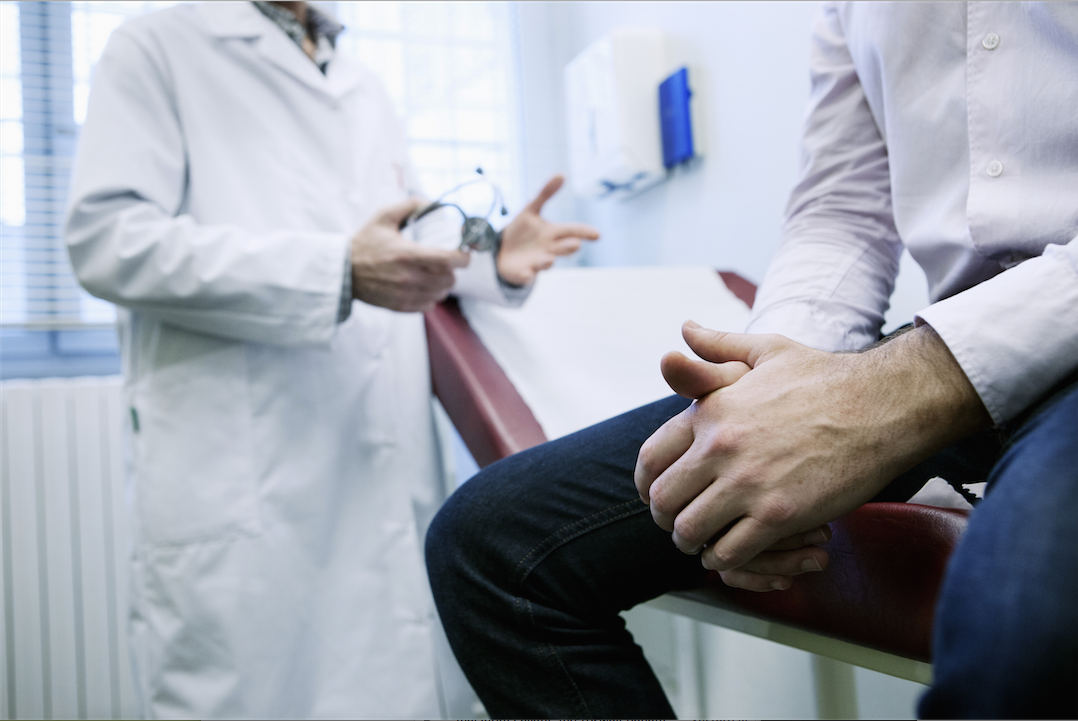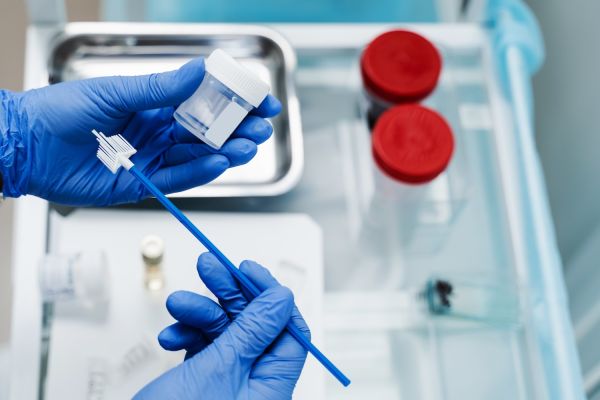The same screening test that helped cut the number of cervical cancer deaths in half over the past 30 years is now being offered at Roswell Park to protect people at high risk of developing anal cancer. The Pap test makes it possible to detect abnormal cells (high-grade dysplasia) so they can be removed before they turn into cancer. It can also identify anal or cervical cancer in the very early stages, when it’s easiest to treat.
Like cervical cancer, almost all cases of anal cancer are caused by the human papillomavirus (HPV), a sexually transmitted disease that infects almost all sexually active people at some point during their lives. The HPV vaccine protects against the types of HPV that are closely associated with cancer, but the anal Pap test is another line of defense for those at high risk who did not receive the vaccine.
To perform an anal Pap test, a health provider swabs the anal area to collect cells, which are then examined under a microscope to spot abnormalities. At Roswell Park, anal cancer screening may also include anoscopy, a procedure in which a lighted scope is used to inspect the area just inside the anus.
Never miss another Cancer Talk blog!
Sign up to receive our monthly Cancer Talk e-newsletter.
Anal cancer screening is recommended only for those at high risk for associate dysplasia or cancer. They include:
- Women who have previously had high-grade dysplasia of the cervix or genitals, or men who have had high-grade dysplasia of the penis
- Men who have had sex with men
- People with weakened immune systems, including people who have undergone transplants and those who have AIDS or are HIV-positive
Men who have had sex with men and who are also HIV-positive can have a risk as high as 40 times that of the general population.
In the 1940s, cervical cancer was a leading cause of death among American women, but the introduction of the Pap test changed that dramatically. We hope to see the same rapid decline in deaths from anal cancer by offering the Pap test for people at high risk.
Anal Pap tests are typically covered by health insurance, and you may call Roswell Park directly, without a referral, to find out if you are eligible. For more information, please call 1-800-ROSWELL (1-800-767-9355).


